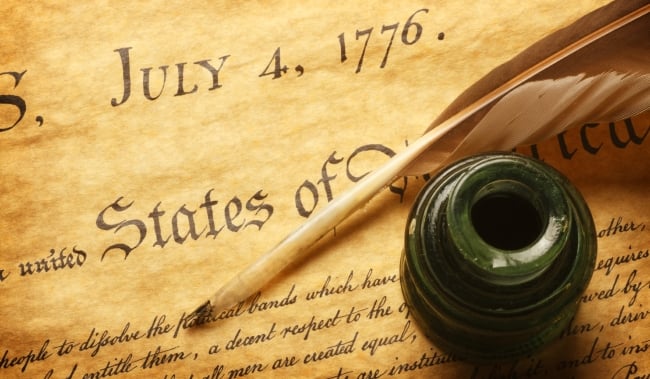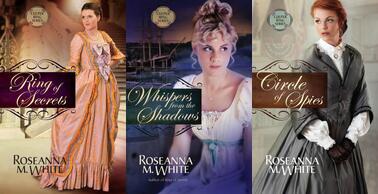
Espionage at Its Best
There’s nothing quite like a story of intrigue and suspense—and so spy stories have long been popular. Cloak and dagger, derring-do, mystery…these are things that capture readers’ attention and keep pages flipping.
I confess that I’ve long loved tales of espionage. So when I got the idea for a novel that included the real-life Culper Ring, America’s first band of organized spies, I was excited. Convinced that, as I did my research, I’d be reading stories of a Revolutionary-era James Bond. Jason Bourne. Maybe some Indiana Jones thrown in.
What I learned was far different…and far better for the differences. What I loved learning about the Culper Ring, and what makes this band so intriguing even today, is that its members weren’t specially trained superspies. They weren’t handpicked by some secret government organization. They were just people.
Farmers. Shopkeepers. Fishermen.
They were people like you. Like me. Normal, everyday, unimpressive people. Ordinary, but still historical heroes called by the faith they all had in common to do the extraordinary. Called to serve what they hoped would become a nation despite the threat of death hanging over them if they were caught.

The Hated Spy
In those days, spying wasn’t cool. It wasn’t respected. It was reserved for the lowest of low, the basest of base. And everyone knew that a spy’s word couldn’t really be trusted—because if you could buy information from them, who was to say they wouldn’t turn around and sell yours too?
Who Were the Culpers?
But General Washington was desperate for reliable intelligence, and so he asked a trusted aide to put together a team of Revolutionary War spies who would report accurate and relevant information to him, and who would value the call of freedom above that of money. This aide, Benjamin Tallmadge, did just that, recruiting childhood friends to serve as his eyes, ears, and feet. They were all given code names, beginning with Abraham Woodhull, called Samuel Culper. They had a few secrets to their trade:
- a code book, called Tallmadge’s Code
- invisible ink, called the Sympathetic Stain
- drop locations
- signals
And these men—the farmers and fishermen and shopkeepers who suffered from “black moods” and bouts of anxiety—became historical heroes. Quietly. Stealthily. But without doubt. Their information helped Washington and his army win the Revolutionary War.
What Became of the Culpers After the War?
We have no idea. None of them ever talked about their clandestine roles in the war. None of them ever profited from their activities. They just quietly went back to their everyday lives. And because no one outside the ring itself ever knew they existed…well, who knows? They could have started again in the next war, when Tallmadge was a congressman. They could have still been in operation 100 years later.
They could—maybe…perhaps…possibly—still be around today. Shh…

Roseanna M. White pens her novels under the Betsy Ross flag hanging above her desk, with her Jane Austen action figure watching over her. When she isn’t writing fiction, she’s editing it for WhiteFire Publishing or reviewing it for the Christian Review of Books, both of which she cofounded with her husband. Learn more about Roseanna at: www.roseannawhite.com.



